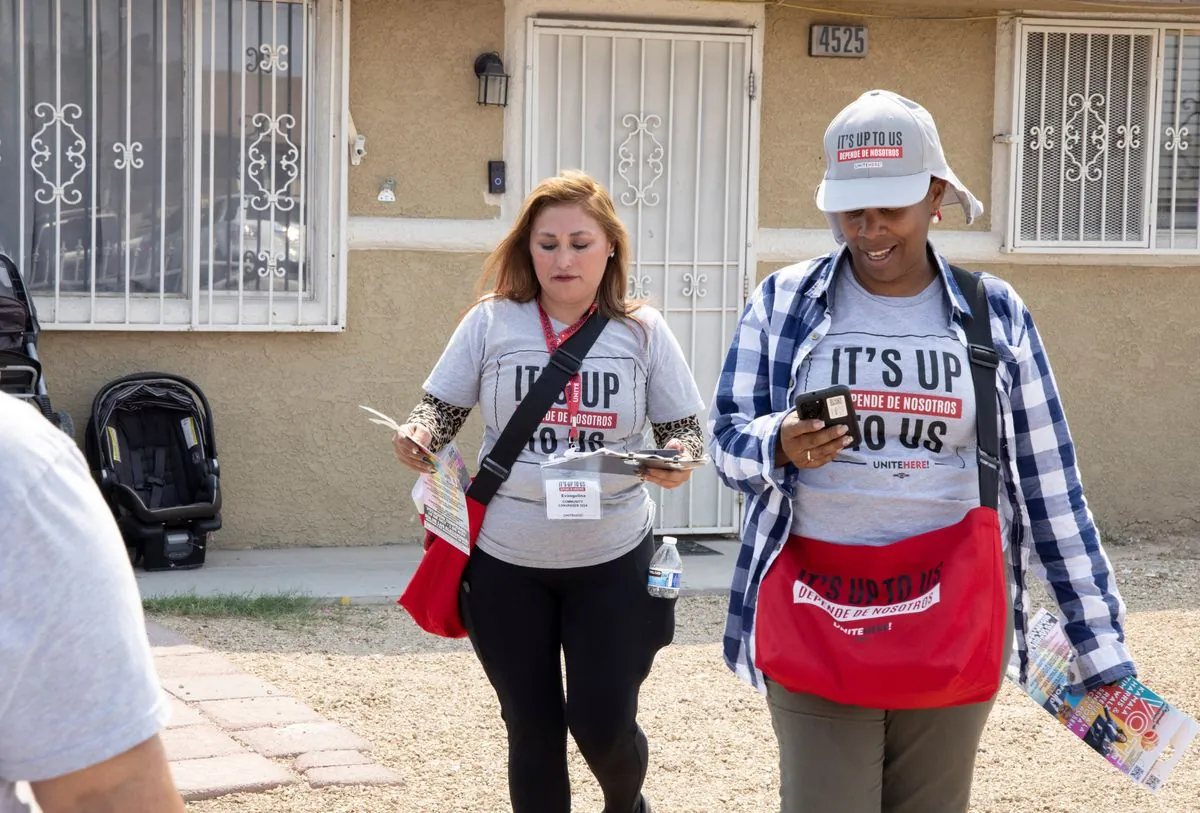Nevada Hospitality Workers Unmoved by Bipartisan Tipped Income Tax Exemption Proposal
Presidential candidates' plan to exempt tips from federal taxes fails to sway Nevada's hospitality workers. Experts and union leaders question the proposal's effectiveness in addressing broader economic issues.

In a bid to appeal to working-class voters, both Vice President Kamala Harris and former President Donald Trump have proposed exempting tipped income from federal taxes. However, this initiative has received a lukewarm response from Nevada's hospitality industry workers, who comprise over 20% of the state's workforce.
Kristie Strejc, a unionized bartender in Reno with two decades of experience, exemplifies this sentiment. While acknowledging potential benefits, she remains committed to supporting Harris, stating, "That'd be a bonus, but I'm not going to vote because of one thing."
The proposal's impact appears limited, with Nevada's chief economist, David Schmidt, estimating that tips account for only about 1.5% of the state's $95 billion annual wages. Furthermore, recent research from Yale's Budget Lab suggests that as few as 3% of taxpayers nationwide would benefit from such an exemption.
"We've been fighting about fair taxation on tips for 30 years."
Pappageorge views the issue as part of a broader set of economic challenges, including below-minimum wages for tipped workers in many states. He suggests that a more comprehensive approach, potentially combining minimum wage increases with reduced tip taxation, could be more effective.
Experts like Ian Berlin and William Gale from the Brookings Institution argue that alternative measures, such as expanding child care or earned income tax credits, could better support low-income workers. They note that exempting tips from taxation "does nothing to help most low-income workers, and it may do little for many tipped workers."
The political implications of this proposal are complex. Jeremy Gelman, an associate professor at the University of Nevada, Reno, interprets Trump's offer as an attempt to sway members of the influential Culinary Workers Union Local 226, which has endorsed Harris. However, with both candidates making similar offers, the potential advantage for either is diminished.

Rocelia Mendoza, an assistant server in Las Vegas, expresses a desire for increased take-home pay but remains skeptical of Trump's ability to deliver. Her stance reflects the broader sentiment among union members, who continue to support Harris despite the potential financial benefits of the proposed tax exemption.
As the 2024 presidential race intensifies, the tipped income tax exemption proposal serves as a microcosm of the broader economic debate. While it may appeal to some workers, its limited scope and potential impact suggest that voters in Nevada's crucial hospitality sector are likely to base their decisions on a more comprehensive assessment of the candidates' economic policies.


































